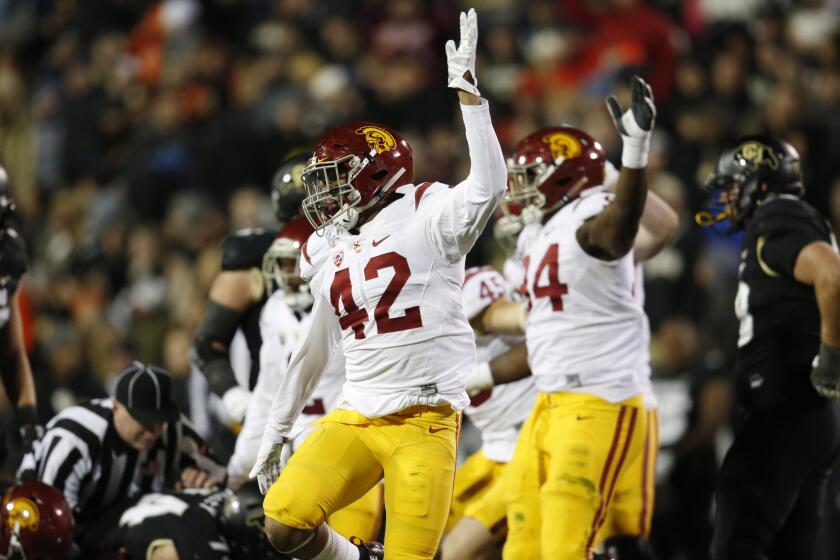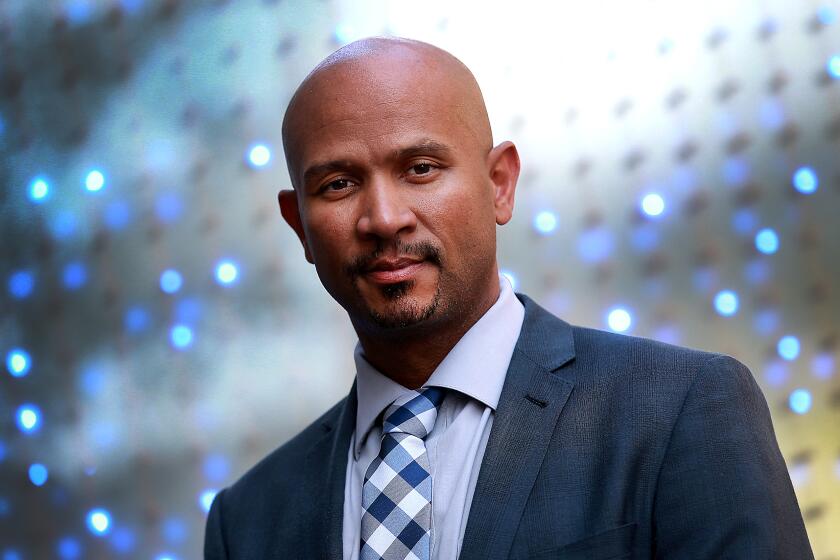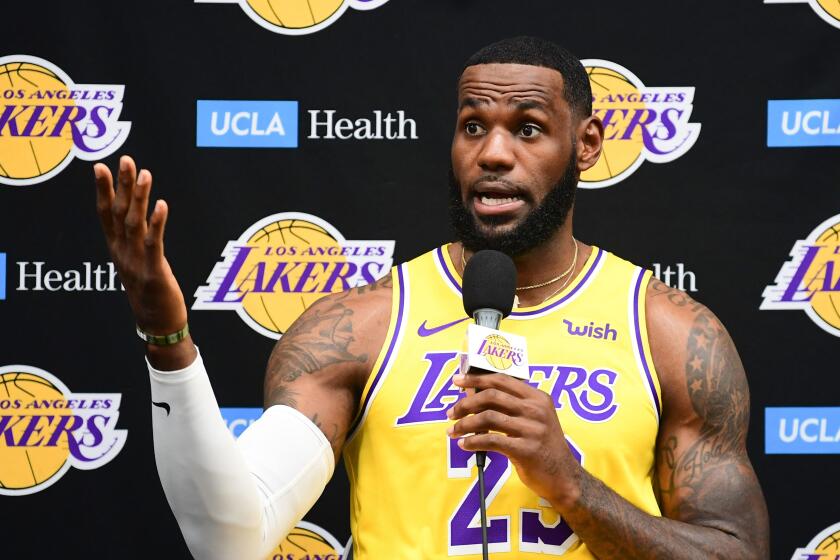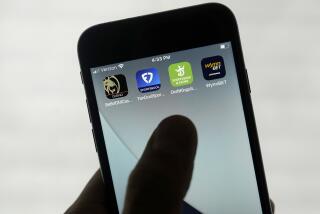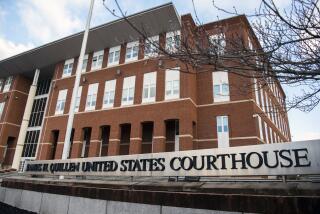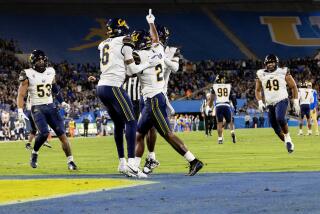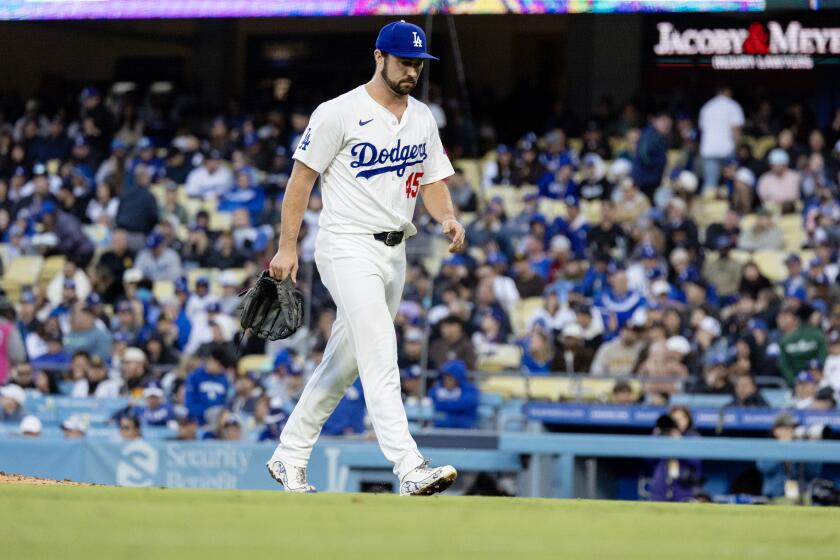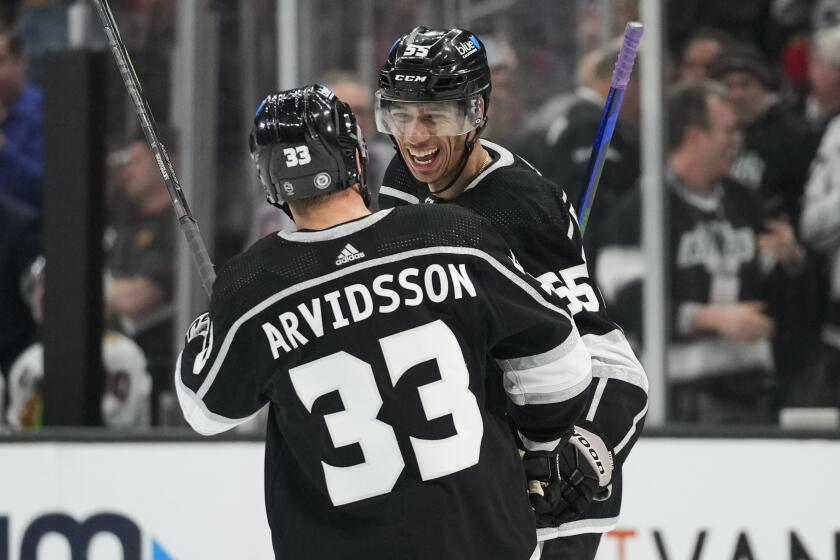News Analysis: What’s next for NCAA and college athletics now that SB 206 is law?
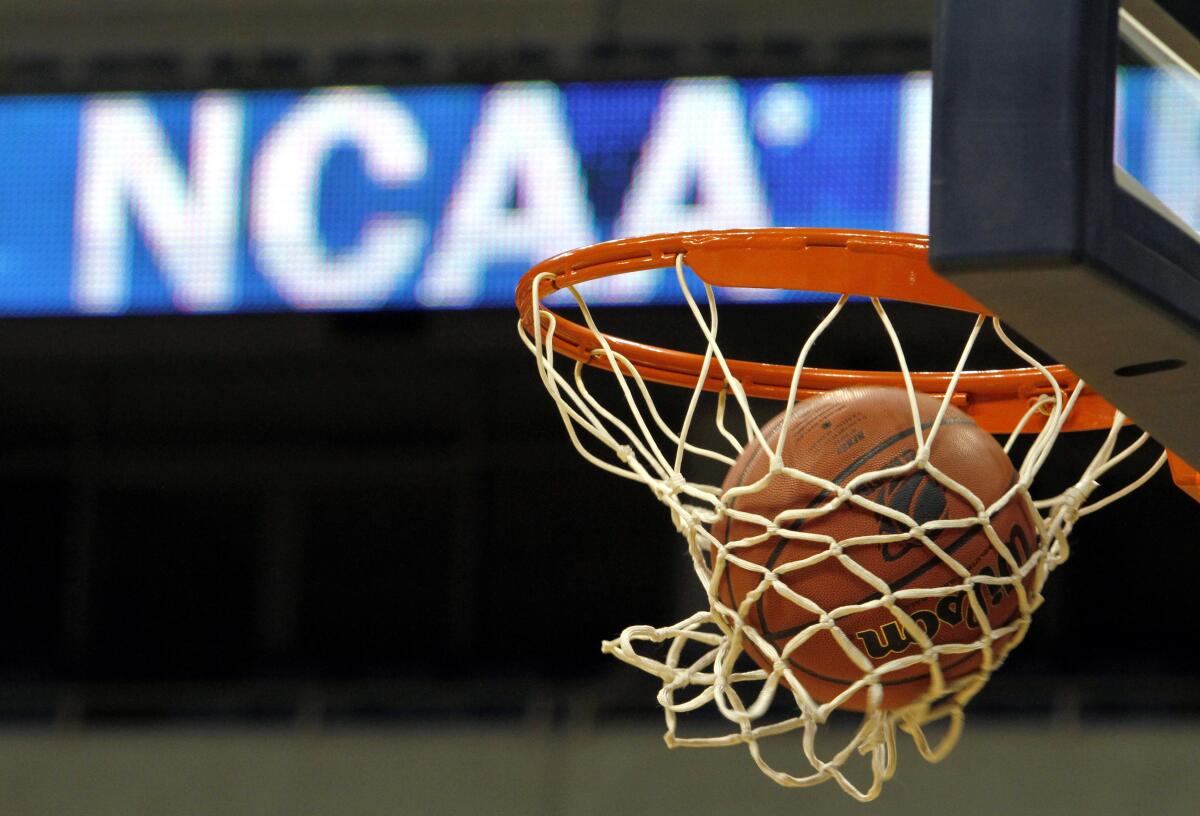
With one signature from Gov. Gavin Newsom on Monday morning, California took the lead on college athlete compensation with the approval of Senate Bill 206, which will allow athletes to profit from the use of their name, image and likeness starting in 2023.
With that same sweep of the pen, though, come even more questions.
The NCAA released a statement Monday that showed college sports’ governing body is in the dark too about what happens next.
“As a membership organization, the NCAA agrees changes are needed to continue to support student-athletes, but improvement needs to happen on a national level through the NCAA’s rules-making process,” the statement read. “Unfortunately, this new law already is creating confusion for current and future student-athletes, coaches, administrators and campuses, and not just in California.”
The thing is, the bill is pretty simple if one actually sets aside the time to read it instead of taking headlines at face value or believing the NCAA’s previous tactics, which have called the bill “unconstitutional” or an existential threat. The relevant portion of the bill is about 700 words, and it does not threaten the future of college sports.
Here are key questions and answers about the law:
What does the bill do?

College athletes in California will be allowed to supplement what the schools offer them — tuition, room and board, and a stipend for any extra cost of attendance — with compensation stemming from the use of their name, image and likeness (NIL). That means they can enter into endorsement contracts with brands as big as Nike and as small as Joe’s Chevrolet dealership; they can be paid to host camps to teach their sport; and they can make money from signing autographs. To accomplish this, they will also be allowed to sign with an agent or hire an attorney to represent them.
The NCAA’s amateurism rules currently prohibit all of the above.
But, through this law, none of these actions will result in the athlete losing his or her scholarship or being unable to participate in their sport. None of these actions will result in the NCAA, the conferences, or any other group or organization with authority over college sports preventing a school from participating because of the compensation of an athlete or the use of their NIL.
Here are three things that landmark bill California SB 206 does for college athletes
How will the law affect college athletic department budgets?
It won’t, at least not intentionally.
If there’s one thing to understand about SB 206, it is this: College athletic departments will not have to spend an extra dime on athlete compensation because of this law.
In fact, the bill goes so far as to explicitly ban the NCAA, conferences and schools from paying players for use of their NILs — not that any of those entities would ever choose to do so.
“A post-secondary educational institution, athletic association, conference, or other group or organization with authority over intercollegiate athletics shall not provide a prospective student athlete with compensation in relation to the athlete’s name, image or likeness,” SB 206 states.
When a UCLA football teammate was suspended for accepting food more than two decades ago, Ramogi Huma was mobilized into pushing for reform in college sports.
The senators who wrote and amended this bill did not make life any harder for the number crunchers in college athletic departments. They did not touch other NIL issues, such as the fact that players don’t receive any cut of the hundreds of millions of dollars in media rights deals negotiated by the schools and conferences. All of that coin stays in the school’s coffers, and schools can continue to claim that their athletes are students and not employees.
California universities expressed to the state Legislature that there would be unintended financial consequences to the bill, like having to add millions of dollars worth of compliance staff to police this new world of activity. They also predicted that they would have to pay NCAA fines up to $5 million total for their teams not being compliant.
Will the law mean California schools get kicked out of the NCAA or Pac-12?
USC, Stanford, the University of California system and California State University schools all opposed SB 206 as it moved its way through the Senate. Those schools rightfully fear retribution from the NCAA in the form of not being able to participate in championships because of California having a major recruiting advantage. It is likely to end up in the courts whether that would be an antitrust violation by the NCAA.
But SB 206 should not be viewed as an existential threat to California colleges’ ability to play big-time sports. It might be an existential threat to the NCAA, if the organization moves too slowly to adapt.
Remember: Colleges don’t need the NCAA to keep playing sports and making hundreds of millions of dollars. The NCAA needs the colleges, and it particularly needs California’s enormous economy and massive TV market share to help fuel its money-making engine.
How could the law affect recruiting for California schools?
The payments to players would come from third parties, and as part of SB 206, athletes will have to disclose them to the schools. Much of the compensation to athletes that comes under the table — leading to NCAA infractions committee investigations and various forms of punishment when schools and athletes are caught — can now come above board.
Joe from Joe’s Chevrolet no longer will have to pass shoe boxes full of cash to his favorite player. Instead, he can employ them for an ad or an appearance at the dealership to sign memorabilia.
Athletic departments could be hit marginally by SB 206 if donors elect to give their money directly to the athletes through their businesses instead of donating to the school to help fund inflated coaching salaries and sparkling new facilities that have more bells and whistles than many professional franchises provide for their players.
What does this mean for the NCAA long-term?
The courts have taken their shots at the NCAA’s amateurism rules over the last decade, and, despite a California federal judge’s ruling in O’Bannon v. NCAA in 2014 that the organization’s NIL bylaws were a violation of antitrust law, nothing has changed in the flow of money in college sports.
Newsom signing SB 206 into law introduced a new battleground, one that should inject much more fear into the NCAA and the schools.
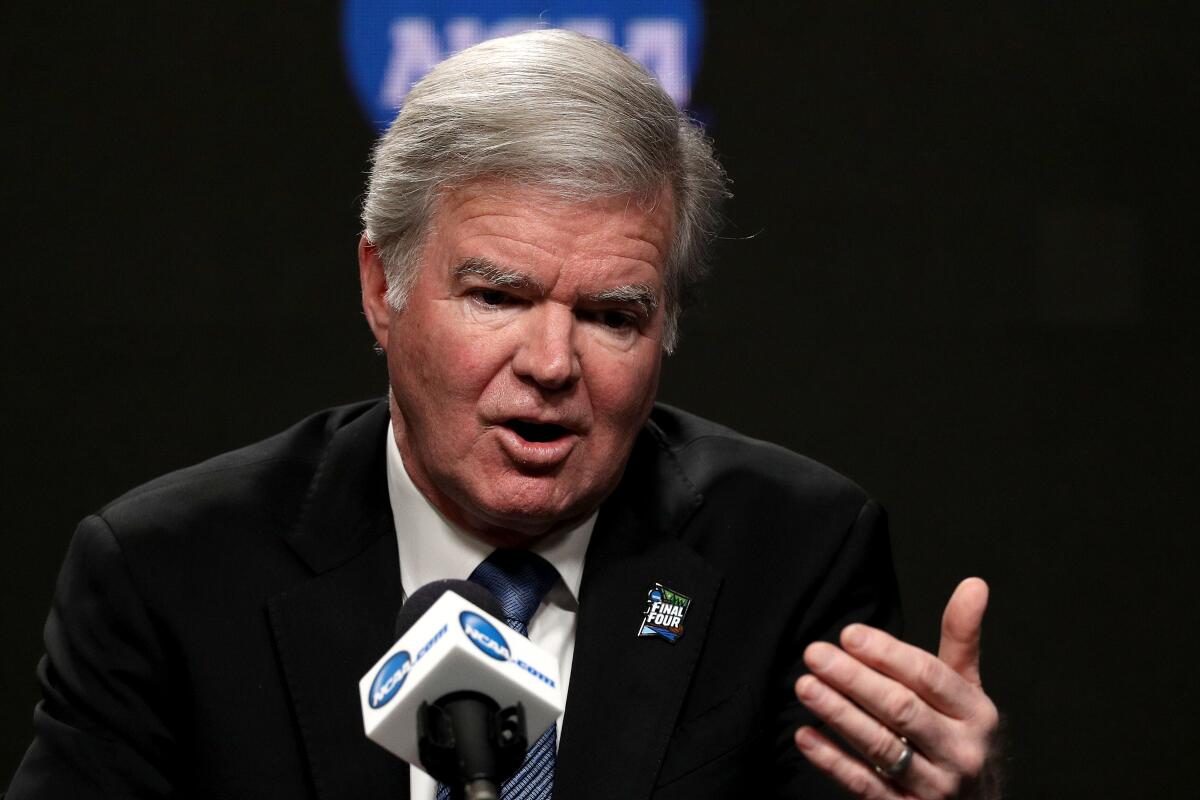
The NCAA has appointed a working committee to examine the NIL issue, and it is expected to release its findings in October. State legislators from around the country will be watching.
“We will consider next steps in California while our members move forward with ongoing efforts to make adjustments to NCAA name, image and likeness rules that are both realistic in modern society and tied to higher education,” the NCAA’s statement read.
“As more states consider their own specific legislation related to this topic, it is clear that a patchwork of different laws from different states will make unattainable the goal of providing a fair and level playing field for 1,100 campuses and nearly half a million student-athletes nationwide.”
Lakers star LeBron James believes California’s NCAA reform bill, which was signed by Gov. Gavin Newsom on Monday, will bring “historical change in time.”
If the NCAA does not back down and drastically alter its NIL bylaws — it is unlikely to, at least this early in the game — then it risks California schools and universities in like-minded states seeking a new endgame: Starting a new governing body for college sports that oversees schools that allow athletes to profit from their NIL. The system would function similarly to the Olympic model for athlete compensation.
Imagine if Washington, Oregon, Colorado, Utah and Arizona eventually passed similar legislation, and the Pac-12 schools — desperate for national relevance as it stands — disbanded from the NCAA? If other states did not follow, much of the best talent would find its way to the West Coast, a migration for which the rest of the country would not stand.
But no one should expect Pac-12 commissioner Larry Scott to be leading this revolution.
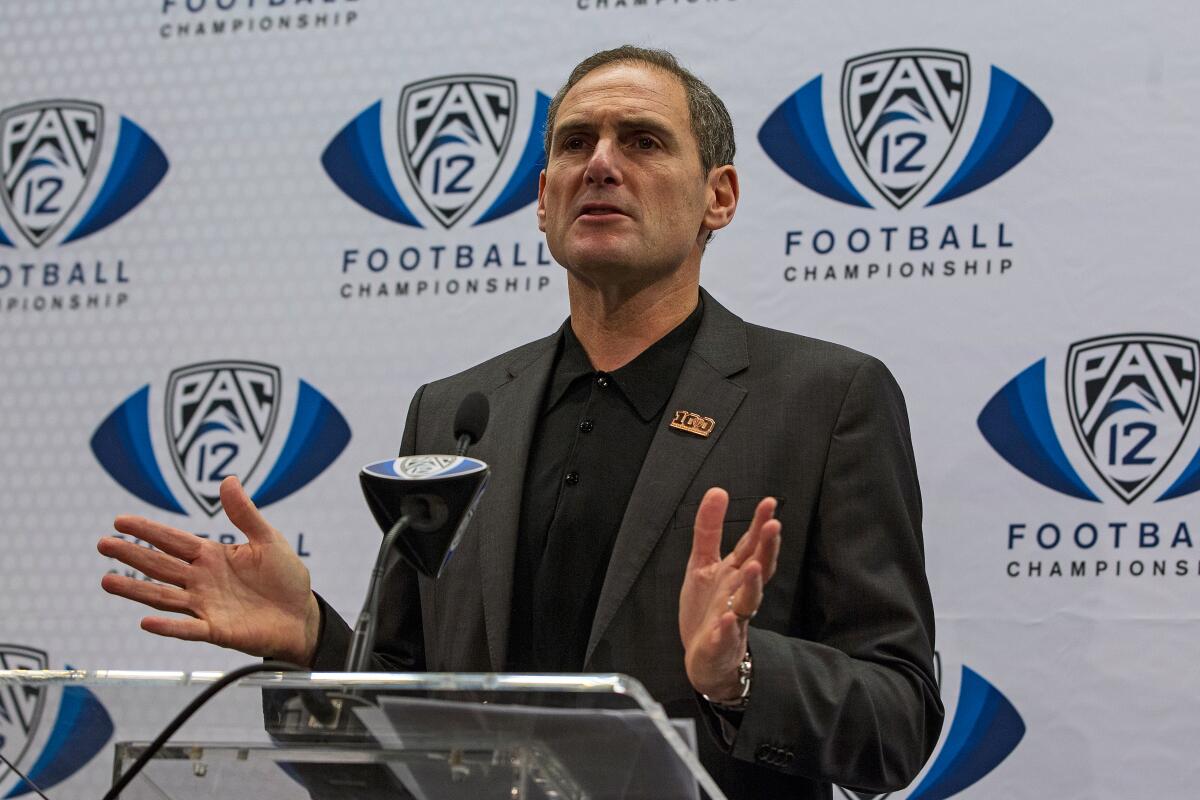
“The Pac-12 is disappointed in the passage of SB 206 and believes it will have very significant negative consequences for our student-athletes and broader universities in California,” read a statement released by the Pac-12 on Monday. “This legislation will lead to the professionalization of college sports and many unintended consequences related to this professionalism. (It) imposes a state law that conflicts with national rules, will blur the lines for how California universities recruit student-athletes and compete nationally, and will likely reduce resources and opportunities for student-athletes in Olympic sports and have a negative disparate impact on female student-athletes.”
For the next three years, statements like that will continue from college sports’ power brokers. On Monday, California broke through the noise.
The NCAA would be smart to avoid its own extinction, admit that its sports are at minimum semi-pro, and allow name, image and likeness use.
With a cap, of course — because people don’t change overnight.
More to Read
Get our high school sports newsletter
Prep Rally is devoted to the SoCal high school sports experience, bringing you scores, stories and a behind-the-scenes look at what makes prep sports so popular.
You may occasionally receive promotional content from the Los Angeles Times.

